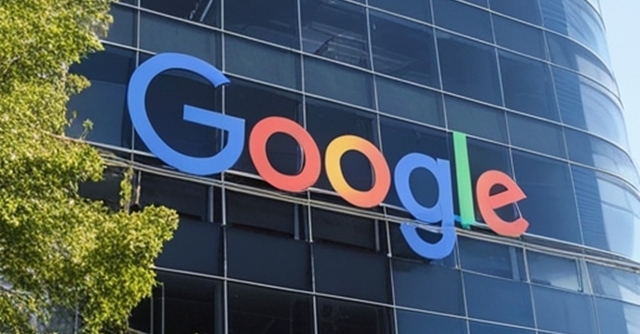
Google-Wiz deal falls apart: Has tech giant lost the cloud battle against its rivals?


Google's parent Alphabet's purported $23 billion bid to acquire cybersecurity startup Wiz has reportedly fallen apart, as the latter turned down the proposal on Tuesday. What could have been the largest acquisition in the tech giant’s history, the rejection may now come as a blow to Alphabet, which is trying to catch up with Microsoft’s Azure and Amazon Web Services (AWS) in an intensely competitive cloud services market.
Experts believe that Wiz, based in New York, which provides security scans for data stored with major cloud providers like AWS and Azure, could have been an attractive target and placed Google in a better position to compete with rivals.
Is Google losing the cloud security battle?

Understandably, Google sought to build up its capabilities in cybersecurity as a strategy to gain a share in cloud computing, as it still trails Amazon and Microsoft in that market.
AWS currently holds the top spot in cloud computing, with a 31 per cent share of the global market as of the first quarter of 2024. Microsoft follows closely behind with a 25 per cent share, while Google Cloud holds an 11 per cent share, despite being profitable in Q1, as per industry reports.
Considering Google's mishap with the Australian pension fund UniSuper’s cloud subscription deletion, impacting over 600,000 members and resulting in them being unable to access their accounts for a week, there was pressure for improved internal security measures.

Kashyap Kompella, industry analyst and CEO of RPA2AI Research, believes that the Wiz acquisition would have enhanced Google's security capabilities significantly and suggests that incidents like this could have been prevented in the future.
Founded in 2020 by Assaf Rappaport, Ami Luttwak, Yinon Costica, and Roy Reznik, consists of former leaders from Microsoft’s Cloud Security Group, Wiz offers a software platform that helps companies detect vulnerabilities and malicious activity in their cloud setup across network, identity, compute, application and secrets. It presents all the information in one place at any scale to deliver quicker insights and informed decision-making. The platform supports AWS, Azure, Google Cloud Platform, and Kubernetes APIs.
Although Google's Mandiant deal in 2022 boosted the tech giant’s credibility in the security space, with the tech giant recently showcasing how its Gemini AI model could be used to help clients analyse threats and address potential vulnerabilities, it could have used Wiz to round out its security offerings, believe industry analysts.

According to Gartner VP and analyst Charlie Winkless, Google's competitors have already made bigger investments in various areas of enterprise security. “The acquisition would position Google to emulate some of Microsoft’s model. Microsoft alone claims to have over 30 billion in security revenues and is a major player in the CSPM market. Google has mainly focused on security within their GCP cloud, even though this year they have expanded coverage to AWS.
Wiz itself is a strong brand with a leading CSPM, surpassing Cisco in cloud security and rivalling Microsoft. AWS continues to focus on security tools within their platform, rather than addressing the broader multi-cloud strategy that many enterprises adopt. The space is further crowded with vendors like Fortinet, Crowdstrike and SentinelOne (acquired by PingSafe), vulnerability management vendors including Tenable, Rapid7, and Qualys, and specialised companies like Orca Security.
Analyst Brad Zelnick from Deutsche Bank believes that acquiring Wiz would have demonstrated Google Cloud Platform's commitment to multi-cloud and cybersecurity, potentially leading to increased market share.

Google’s loss is Wiz’s gain
Meanwhile, in an internal memo, Wiz co-founder Assaf Rappaport said the company would instead pursue an initial public offering. “Saying no to such humbling offers is tough,” Rappaport said in the memo sent to Wiz employees.
Had the acquisition gone ahead, it would have doubled the $12 billion valuation that Wiz announced in May after the company raised $1 billion in private funding. According to the memo, Wiz will now focus on achieving $1 billion in annual recurring revenue alongside the IPO — goals the security firm had set before its talks with Google.

Antitrust regulators have increasingly fixated on deals made by Big Tech in recent years, however, both antitrust and investor concerns were cited as reasons for Wiz abandoning the deal. The Justice Department has already launched two ongoing antitrust lawsuits against Google over its search engine and digital advertising businesses. Google purchased two cybersecurity firms in 2022 — Siemplify and Mandiant — for $500 million and $5.4 billion, respectively, with the latter company best recognised for uncovering the SolarWinds hack.
The news comes less than a week after it was reported that Alphabet has abandoned plans to acquire marketing software firm HubSpot Inc. Reports that Alphabet was interested in HubSpot first emerged in April, with a report in May saying that terms of a deal were under discussion but ultimately, the two companies couldn’t agree on a figure. But both the deals — Wiz and HubSpot — show that even with the best of intentions, deals aren’t final until both companies sign on the dotted line.
